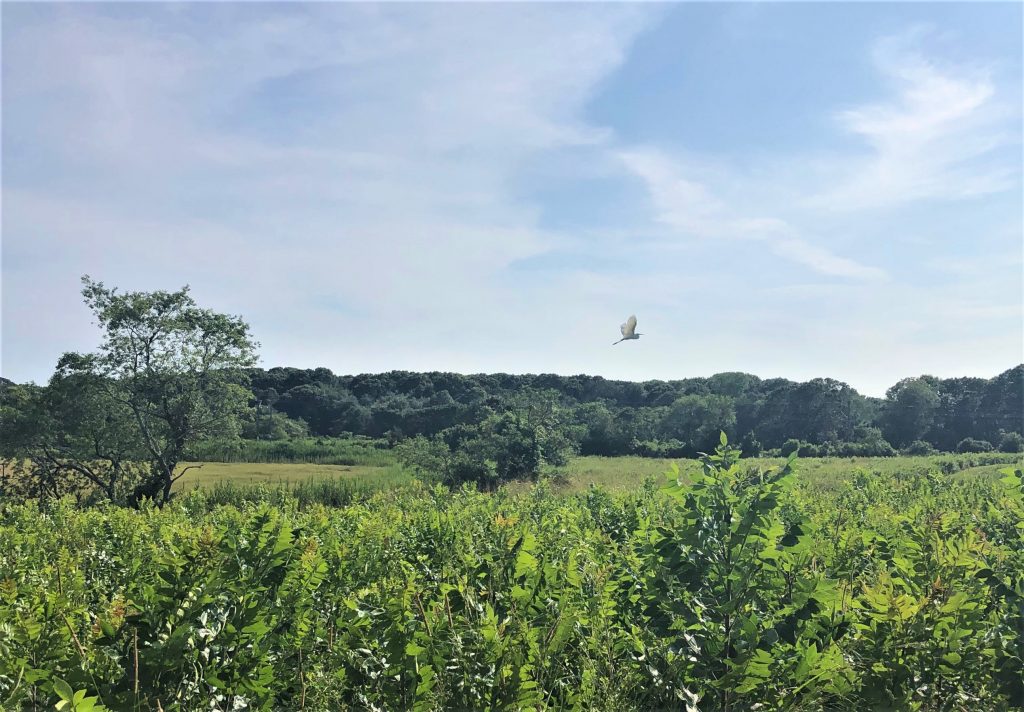“Streamlining” regulatory processes is a common refrain in conversations about state agencies. Today staff attorney Kat Fiedler explains why that can’t be the whole solution for meeting Connecticut’s environmental agency resource challenges—and how oversimplification of permitting can actually put public health and our natural resources at risk.
The Connecticut Department of Energy and Environmental Protection (DEEP) has consistently been asked to do more with less. Staff are stretched thin in meeting permitting demands of the regulated community (industry, construction, businesses, etc.) while also ensuring the strongest protection of our waters, air, forests and wetlands, and public health. Regulatory processes are often perceived as excessively cumbersome—but review and processing times are often the result of the critical, complex review required to understand and lessen the environmental impacts of a potentially harmful activity and/or because DEEP staff are overburdened and have many other projects in the queue.
And now DEEP’s limited resources are facing a new test, with unprecedented retirements anticipated by July 2022. Nearly 39% of DEEP staff are eligible to retire, and budget constraints might limit the agency’s ability to rehire sufficient staffing. (Not to mention, DEEP’s staffing numbers and budget allocations are already low!)
Save the Sound’s March report “Protecting Connecticut’s Future: Overcoming the 2022 Environmental Cliff” spotlights these challenges and the need for our state legislature, governor, and DEEP itself to start taking action now, before the agency’s critical functions are hamstrung by the loss of decades of expertise.
The state’s own new Connecticut CREATES Report evaluates opportunities for efficiencies statewide in light of the upcoming retirement cliff. For DEEP, it proposes the following recommendation: “[F]urther simplification of regulatory requirements, such as on environmental permitting, will ensure that the agency can balance efforts across regulation, enforcement, and other activities, although legislative action will be required.” In other words, shortcutting environmental review will result in efficiencies—logical on its face, yet with potentially devastating outcomes if not done thoughtfully.

The solution to DEEP’s resource constraints is not to strip the agency of its oversight responsibilities for permit applications and compliance. Doing so ignores the enormous value and utility of this role and could lead to unnecessary and preventable environmental harm. Let’s not fall into this dangerous trap. This is not an approach that should be taken lightly or considered without exhaustive consideration. There are other efficiency measures that can and must be considered that retain necessary oversight and transparency, and support DEEP’s charge.
DEEP’s 20X20 Initiative included similar proposals. The Initiative aimed to improve transparency, efficiency, and predictability of DEEP’s regulatory processes—with a particular focus on the perspective of the regulated community. Several goals would eliminate certain levels of review: Goal 6 – “Fast Track Same-to-Same Permit Renewal Time;” Goal 7 – “Change Individual Permits to General Permits;” Goal 8 – “Eliminate Some Permits and Move to “Permit by Rule.”
And each year, the Connecticut General Assembly sees proposed rollbacks to our environmental laws, citing bureaucratic inefficiencies rooted in DEEP’s resource constraints, yet undermining the very core function of these regulatory measures. For example, in 2019, HB 7298 proposed the automatic approval of permit applications after only 90 days, including for complex applications like those for solid waste facilities, which can have tremendous environmental, health, and quality of life impacts. In 2020, HB 5496 proposed eliminating a number of monitoring requirements under the Municipal Separate Storm Sewer System General Permit. The needed transition from the Transfer Act to a release-based remediation program, passed in the 2020 Special Session, also included the unnecessary privatization of oversight.
Simplifying regulatory processes is not inherently harmful to the environment. But any simplification or streamlining must be done with utmost caution and with good intent. Fundamentally, there is a level of scrutiny and oversight that we cannot drop below. Critical review by technical staff, transparency and opportunities for public input, and the development and incorporation of mitigating permit requirements are all critical steps that protect the environment and public health. So too are monitoring and reporting requirements that allow for continued compliance oversight. Some regulatory processes cannot be simplified or trimmed without significant harm. As the State, and DEEP, consider efficiency measures in order to overcome the retirement cliff, streamlining of regulatory processes must be considered with caution—and always through the lens of the Department’s fundamental role in protecting and improving our water, air, land, and wildlife.
